Dr. Isabel Andermatt was not always a prolific figure in the world of agriculture. Her earliest memories are of dogs, cats and birds in the Philippines, where she was born.
They were her first passion, and upon relocation to Switzerland with her parents, she had made it abundantly clear that she would need to have pets in her life.
It was during her formative years that she first remembers developing an interest in plants and insects, which would prove to be fortunate for the years that followed.
“I was walking with my grandfather, while he collected plants to press, and I was fascinated. While we looked for the plants we found caterpillars, and butterflies and insects became a great interest of mine,” she said.
Christmas wishes were filled with microscopes and caterpillar breeding boxes, and Isabel was hooked on the wildly fascinating world that lives beneath our feet.
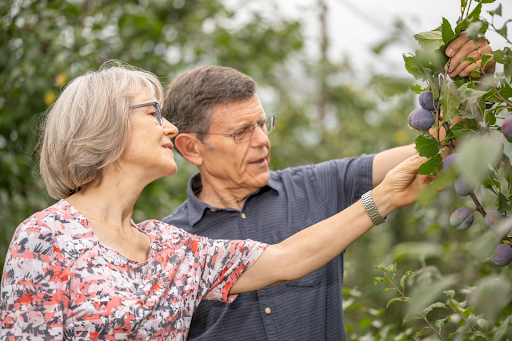
Dr. Isabel and Dr. Martin Andermatt
Isabel first met her future coconspirator and collaborator following an exchange year abroad in the United States in 1976.
“When I returned to Switzerland, Martin and I were placed in the same class, and I thought he was a very interesting person. We’ve been together ever since,” she recalled.
Martin and Isabel had settled on different career paths but chose to study together in Zurich.
Isabel pursued veterinary sciences at the University of Zurich while Martin began studying agronomy at the nearby Institute of Technology.
She may well have become a very accomplished veterinarian had there not been a sudden need to produce codling moths (Cydia pomonella).
Isabel had been working for a small veterinarian practice for about a year when Martin realized that there was already comprehensive literature available about the potential of the use of a granulovirus against codling moth, a key pest in pome fruit production. The couple was bothered by the fact that, despite the available knowledge, there was no product available to organic fruit growers. So, they decided to develop this product themselves.
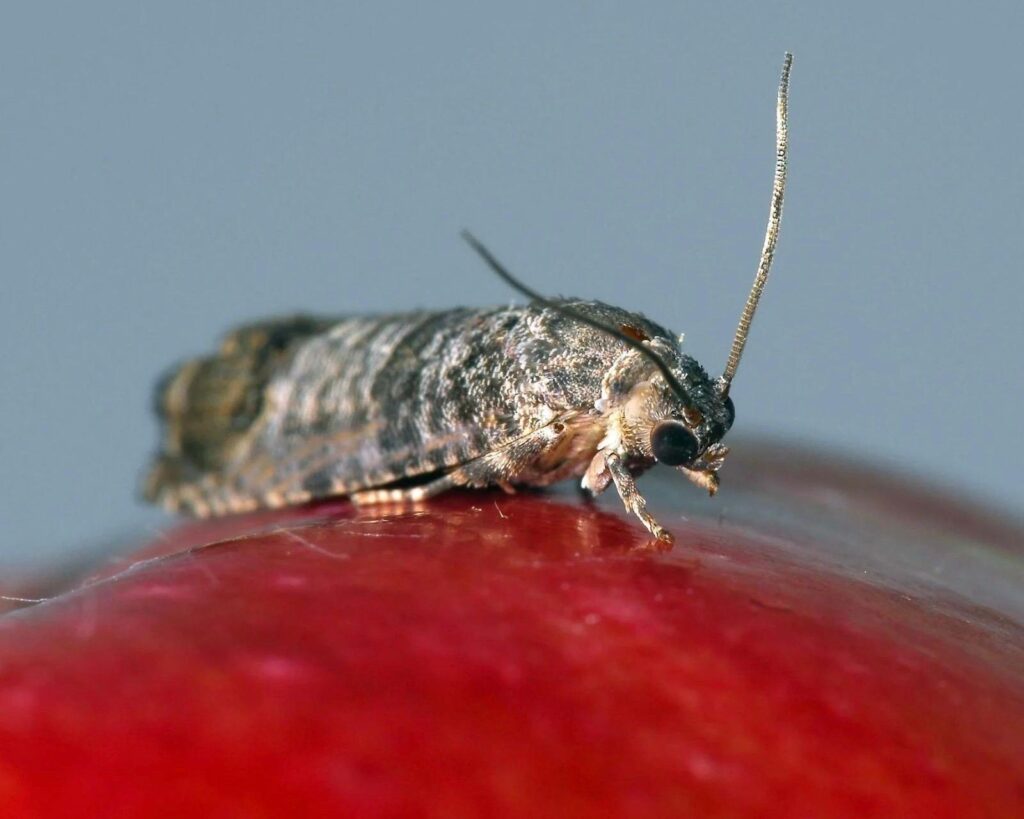
Codling moth (Cydia pomonella)
While pregnant, Isabel took on the role of production as Martin began field trials to prove their efficacy.
It was a success, and within only a few months, their product had been approved for sale to farmers in Switzerland.
In a small Zurich apartment, Isabel became Andermatt’s first unofficial employee – ensuring that there would be enough products to ultimately launch a product that could benefit farmers around the world.
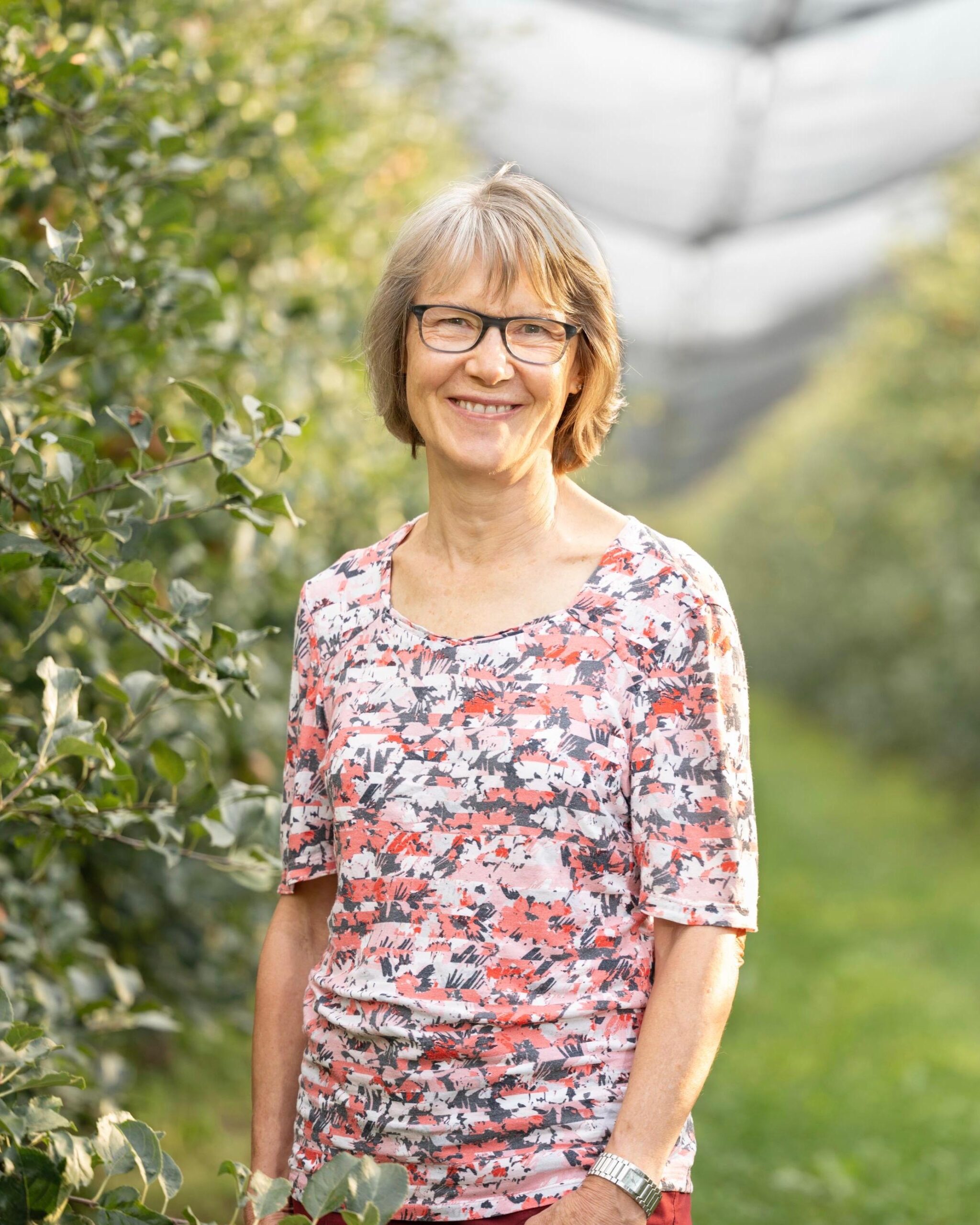
Dr. Isabel Andermatt
“It was an interesting part of planning. The baby was due in April, so the first few months of 1988 would have to see us creating enough products to last the year. The owner of the property that we stayed in was fortunately very kind, and we ended up using the cellar, boiler room and bathrooms to assist in meeting our production targets,” she said.
Soon, farmers from Germany and Austria would cross the border to purchase Isabel and Martin’s products, and the couple moved to Grossdietwil – where a stable would become Andermatt’s first real production facility.
Holding an eight-month-old baby, and with two employees under her wing, Isabel would dedicate herself to ensuring the successful growth of the organization.
She took a bookkeeping course and became the company de facto administrator, and the couple purchased their biggest investment to date: a computer.
The stable became a place of innovation, and their house was one of experiments. Many of these experiments have become part of the Andermatt range of products.
There was the occasional failure, (“We had a batch of nematodes that stank up the entire house. I threatened to pack my bags!”), but the company grew from strength to strength, and those early years of experimentation and curiosity have helped develop a workplace culture that breeds biological success.
The first ten years were up and down.
Every successful year was followed by one which was more difficult, but Isabel and Martin persevered – releasing new products and continuing to build the business that Andermatt would become.
Isabel’s role would grow, with functions in finance, HR and even IT – but she was always involved as Martin’s sounding board for new ideas, new products, and new markets.
“I wouldn’t have started the business if I had to do it alone,” Martin has said of the early days.
“She was the person I would bounce my ideas off. We made every decision together,” he added.
When the cost of macrophotography of bio-organisms was too prohibitive, Isabel would assist in helping to illustrate the efficacy of their products.
Over decades, Isabel has played a critical role overseeing finances for the business, utilizing her key strengths of perseverance and prudence to ensure that the business could scale sustainably, without compromising its values.
Her toughest period came when Brazilian farmers were in desperate need of a solution that would combat Helicoverpa armigera.
The company hired an additional 120 people and drove production to meet demand, but there were unexpected problems in scaling up.
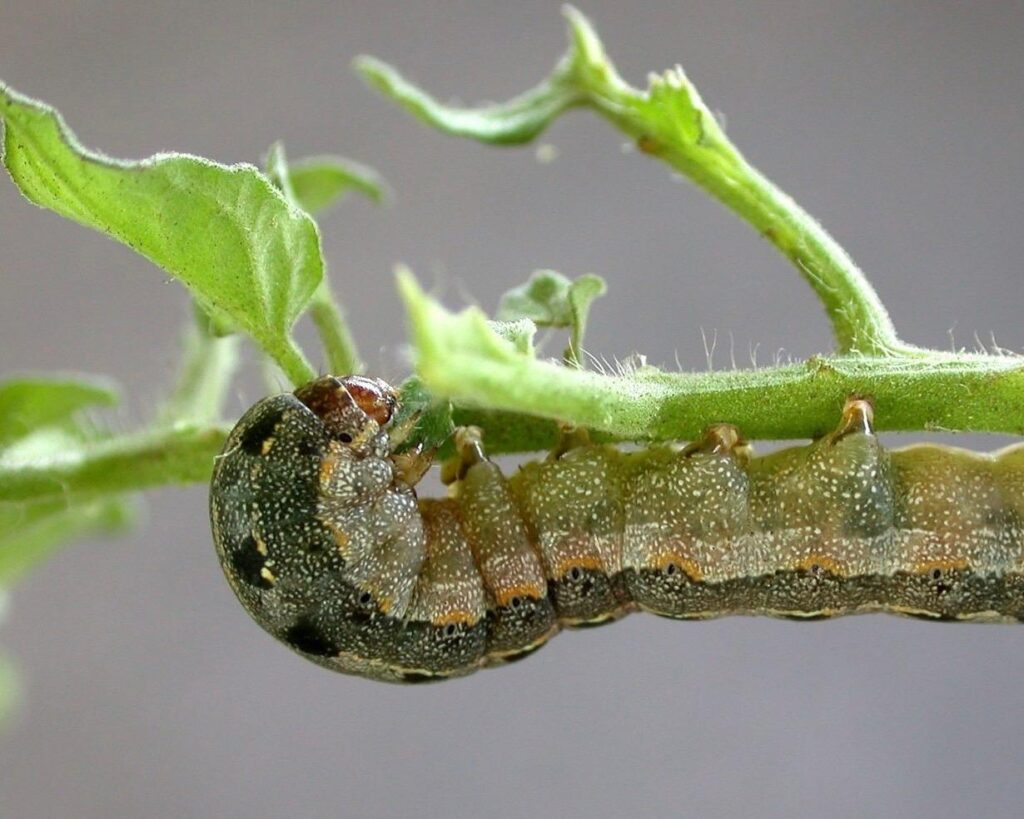
Cotton bollworm (Helicoverpa armigera)
Stress was high, and Isabel would have many sleepless nights as the team drove to refine their production process to find a solution.
In the end, they were able to meet the demand and fill the gap to provide a solution that would work for farmers – but those sleepless nights have stayed with Isabel as she vowed to never promise too much and take a cautious approach in scaling up.
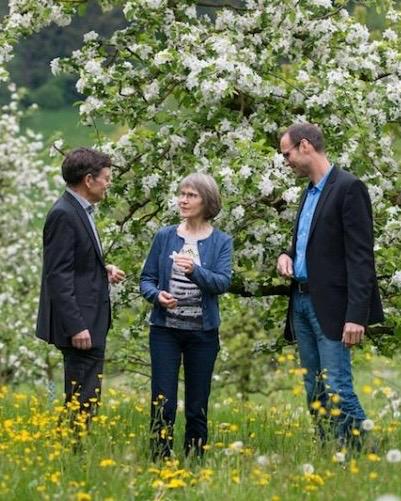
Drs Isabel and Martin Andermatt and
CEO Daniel Zingg
As a leader in agriculture, Isabel has served on several boards, but her biggest highlights remain the early days of experimentation and adaptability. Playing a personal role in helping to create the products that launched the business is a fond memory for Isabel.
Ultimately, Isabel is proud of the people who have joined herself and Martin along this journey, who share their vision of sustainability: not just in terms of environmental issues, but in making them economically viable, and in support of the delicate equilibrium that drives the biological movement forward.
Isabel retired three years ago and resigned from the board of directors during mid 2025, but her impact remains within the DNA of Andermatt.
A veterinarian turned bookkeeper turned biological expert, she helped to forge the path on which biological innovation has become a reality for growers around the world.
Thanks to Isabel and her decades of dedication, we can continue to work towards our vision of “Healthy Food and Healthy Environment, for all”.